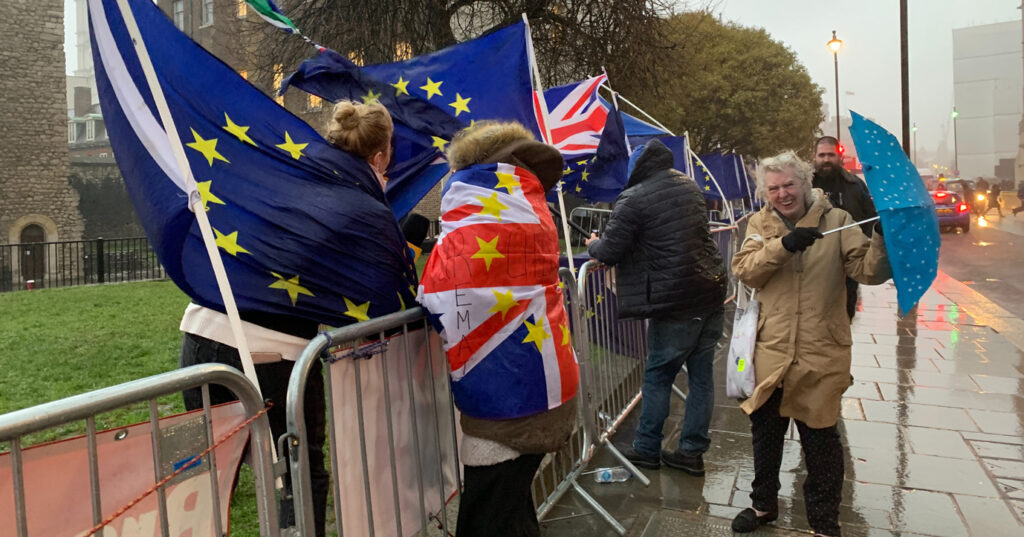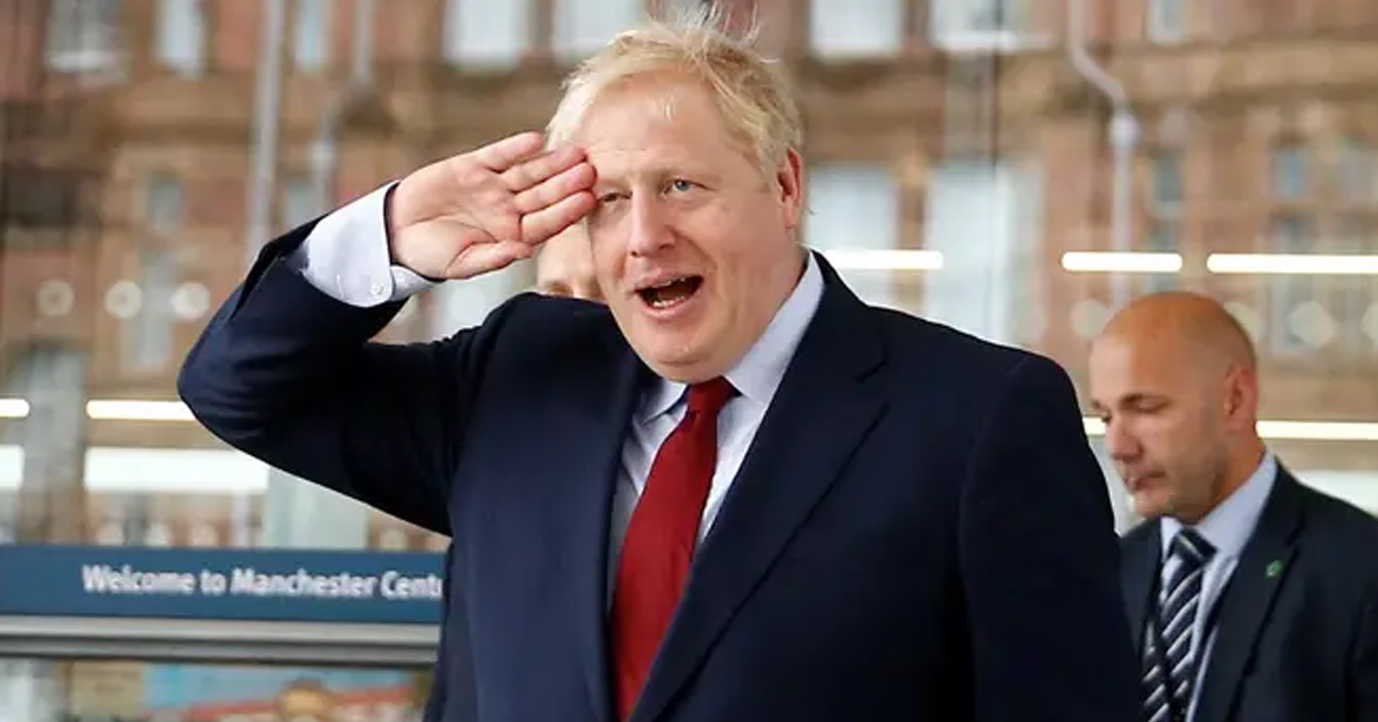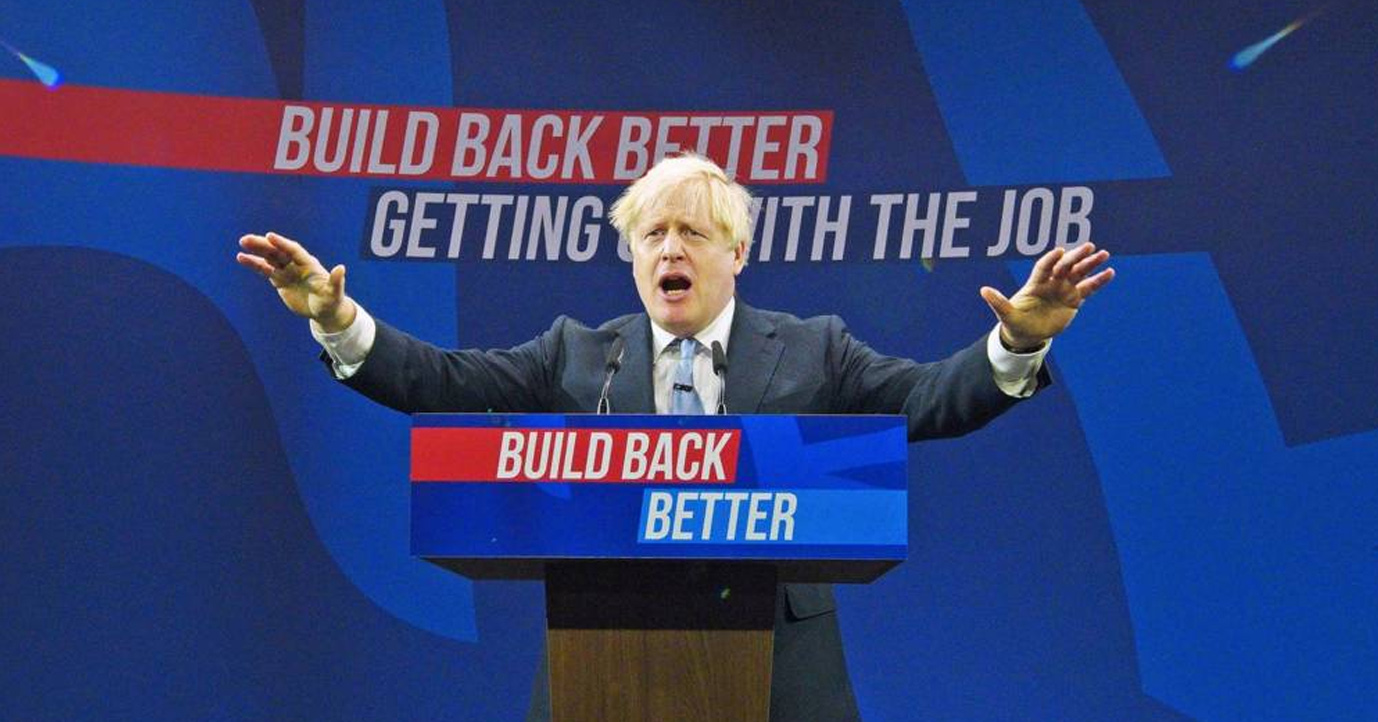
Last week’s pause in the parliamentary shenanigans over Brexit provided an opportunity to hear what the voters made of it all. This I did with a round of focus groups, conducted in London, Plymouth, Leeds and Newcastle. Though few have the time or patience to digest every morsel of Westminster news, their summary of the state of play was always succinct: “Theresa has had to go back to Europe, but they’ve said ‘non’,” was a typical summary. “She’s just collecting air miles. She’s going round in circles;” “As a country we now look very weak and very silly to the rest of the world. It’s come to the point that it’s almost embarrassing.”
“They’ve left their homework until Sunday night.”
People knew that the main sticking point was the backstop, and therefore the Irish border – an issue that seems to many to have been adopted as a convenient obstacle to Brexit and thus blown out of all proportion: “It’s just something for the politicians to talk about, something for the EU to hang their hat on.” Though some were frustrated that “a problem for the Irish” which had barely been mentioned during the referendum campaign was holding up the whole enterprise, people accepted that the problem needs solving. Even so, many doubted the supposed impossibility of the task: “It’s an absolute red herring. They’ve made it into something it doesn’t have to be;” “Technology can definitely do it. They can find a way. Other people don’t seem to have a problem.” While people knew what the backstop was for, few could explain how it worked – though some had picked up that as things stood “we would never get out of the customs union, they won’t set a date.”
But if the border and the backstop were the proximate cause of the current impasse, the more fundamental reason was that “they’ve left their homework until Sunday night.” Remainers especially argued that the referendum had been embarked upon with little thought given to the potential consequences, let alone a proper plan for leaving the EU: “David Cameron cocked it up. He thought he would win but he lost and off he went.” Everything since had been the “ripple effect”.
For many leavers, the plan should have involved serious preparations for a no-deal exit from the outset. Despite the now-discarded mantra that no deal was better than a bad deal, “no deal has never really been discussed. If it had been more on the table and the government had been planning for no deal, it would have put more pressure on the EU;” “When they started digging in their heals they started backtracking. It was an idle threat that we would leave with no deal.” (As such, it would be foolish to take no deal off the table: “She’d have no bargaining power whatsoever. It’s like someone ringing your doorbell and saying they’re not going until they’ve bought your house. You’d say it was ten million quid.”)
Some felt that for all her exertions, the problem was that Theresa May remained a remainer at heart: “I’d rather have had someone doing it who believed in it.” This had prevented her being tougher in the negotiations and more willing to threaten to leave with no deal if the right terms could not be agreed: “She should have done a Donald Trump.”
Another thing that should have started much earlier was the effort to build a cross-party consensus. Europe did not take us seriously because we were divided; a united front, many argued, would have clarified Britain’s position and put the government in a stronger position to negotiate: “What they’re doing in parliament now, that’s what they should have been doing before they even invoked Article 50, so parliament agreed on what we were going to the EU with. They’ve done it back to front really;” “People like Jacob Rees-Mogg should be the extremists in the corner, they shouldn’t be leading the debate.” As it was, “she’s now having to bribe Labour MPs up north, to give more money to those councils. It’s crazy really. This is history you’re living through.”
“You should have been talking from the start, you petulant child.”
Of course, a cross-party consensus is not something a government can build by itself. Most thought Jeremy Corbyn was himself a Brexiteer, but that Labour’s own divisions had forced him to appear ambivalent, while the demands of party politics had made him obstructive: “It’s because it’s a Conservative-negotiated deal. It doesn’t matter what the deal is, there is no way they were going to back it because they want to push for a general election. That’s what’s frustrating people – whatever is on that piece of paper is utterly irrelevant, they’re not going to pat her on the back and say ‘well done’.” Labour would want to avoid losing votes from either leavers or remainers, so “in interviews he will dodge the question in a quite funny obviously dodgy way.” The party seemed to want to avoid being associated with whatever happened: “They think it’s going to be a mess, so they don’t want to own it. So they’re going to hang back and when it goes pear-shaped, blame the Tories.”
If this was understandable, it was not particularly commendable: “We elected them to have an opinion and they’re just not;” “He’s used the UK’s future, the Brexit debate, to score political points.” His refusal to meet the Prime Minister after the vote on the Withdrawal Agreement had stuck in people’s minds on all sides: “Why make that stand then, when everyone else was agreeing to it?” “When he said he wouldn’t talk to her, that was ridiculous;” “He wouldn’t meet the Prime Minister, but he meets terrorist groups!” Some had noticed that Corbyn had belatedly joined in discussions, but “you should have been talking from the start, you petulant child. From the moment the country decided, there should have been a cross-party consensus that OK, this is happening, let’s work together. But they haven’t, they’ve worked against it.”
Several people in different groups – not least 2017 Labour voters – said their initially positive view of Corbyn had waned in recent months as he seemed more and more like just another politician: “The thing that sticks in my mind is when he got on that Virgin train and completely bullshitted, saying it was rammed, and was proven wrong. He had so much egg on his face;” “And when he called Theresa May a stupid woman and said he didn’t. An idiot could see he said ‘stupid woman’. Why would you do that, because everyone knows you’re a liar?” “I’d like to be a fan of his, I really would, but my instinct is that he’s trying to pretend to be something different to the norm, and actually he’s exactly the same;” “My whole family, we loved him. It’s like when you first see Boris, you think he’s really cool, you really warm to him, but both of them have just descended into madness. It’s sad, it’s really sad.”
“May Deal Number 42.”
Most people had at best a hazy understanding of the contents of Theresa May’s Brexit deal. Apart from “£39 billion in reparations” and an attempt to “keep some kind of trading arrangement with Europe” – and, of course, the ubiquitous backstop – very few details had sunk in. There were four main reasons for this. First, people had long ago started to tune out of Brexit news. Second, most of the coverage people did notice seemed to concentrate on the various objections to the deal, making it hard to pin down what was actually in it: “No-one’s any the wiser about what she has worked out. I think everyone’s switched off.” Third, the deal still did not feel like a final proposal: “It’s like a constant working document;” “They keep flipping and changing everything. There is literal Brexit fatigue, where you say OK, she’s got a deal, fine, May Deal Number 42, just get it through. It’s the moving forward I want now, not the whatever deal it is.” Fourth, and perhaps most tellingly, people no longer believe it matters what they think: “Even if we do know everything about it, it doesn’t really make any difference. We’ve got no control over it, have we?”
What people do know is that the deal has been attacked from nearly all sides, which suggests to some that “they wouldn’t be objecting if there wasn’t something that wasn’t quite right with it” and prompts others to reflect that “it was always going to be like this” given that “the EU were never going to make it easy, the Conservatives were never going to do anything brilliant and the other parties are just going against them and causing chaos;” after all, “no-one’s ever going to say it’s an amazing deal, unless we somehow get out of the EU, don’t pay for the divorce and get all the luxuries, which is never going to happen.” At the same time, for all the talk of “Norway Plus Plus and Canada Minus”, few on either side believed there was any prospect of the EU agreeing to substantially improved terms: the choice was between this deal or something very much like it, and no deal at all.
“It’s not the apocalypse. Calm down.”
Most remain voters were not as terrified about a no-deal Brexit as might have been expected given the increasingly frantic tone of some coverage. There were some qualms, however: “People stranded at airports, suddenly you can’t get avocados, people can’t get antibiotics or insulin. Can’t get Marmite from Unilever. Can’t get literally anything because of just-in-time manufacturing;” “The farmers will be weeping into their smocks, or whatever farmers wear;” “It would be absolute chaos for a good month;” “If we couldn’t get bananas we would get over it but it would be damned annoying. I like bananas.”
More often, people tended to think that predictions of disaster were either wildly pessimistic – the Millennium Bug was regularly invoked – or deliberate scaremongering: “Things are sensationalised to make us feel uneasy. They want people feeling fed up, feeling that they’ve made a mistake, questioning their choices, questioning the reasons they made that decision in the first place.” Any disruption would probably be shortlived: “If and when it came to it, I think the country and the companies within these other countries would pull together;” “If it’s imports or holidays, other countries would soon kick off if all that stopped;” “It’s not the apocalypse. Calm down.” Real problems were more likely to come from people’s reactions to the scare stories than as a direct result of Brexit: “The country will go into panic mode. It will be Joe Public who causes the chaos. Like when you get an inch of snow and suddenly all the shelves in your corner shop are empty.”
Leave voters were rather more bullish about the idea of leaving without a deal: “We’ve had all this stuff about taking the Queen out of Buckingham Palace in a helicopter because of all the looting. It’s all made up;” “They said it would be a disaster if we didn’t join the euro!” They also argued that it simply wasn’t in Europe’s interests for trade to be disrupted: “Everyone’s making out that we’re going to be ostracised but they still want to trade with us as much as we want to trade with them” – indeed, some argued, the EU’s current intransigence actually confirmed how much they wanted the UK to stay and therefore how much they needed us: “We’re the front wheel of a Reliant Robin.”
Even so, not all leave voters were gung-ho on this point. On both sides there was a widespread feeling of uncertainty: “I just feel like we’ve got no idea.” Though some plans for no deal may be in place, “the whole process hasn’t instilled confidence. Unfortunately the government doesn’t fill us with confidence, and that’s the problem.”
“This has to come to an end.”
Despite this, very few leavers and surprisingly few remainers supported the idea of extending Article 50 to give more time for negotiations. Some said this might help if there were “honest negotiations”, with a clear way forward and a real chance that the situation would be resolved, but otherwise “it’s just dragging it out, prolonging the agony.” Moreover, the new deadline would then be no more real than the old one: “what’s stopping you the next day voting for another extension?” “We will punt it every time.”
What, then, did people expect to happen in the end? They had noted the huge defeat for the deal in the Commons, the lack of movement on the EU side, the seeming intractability of the Irish border question and the continuing divisions within and between the parties at Westminster. Yet most of the people in most of our groups – remain and leave, Conservative and Labour – thought we would end up leaving with some sort of deal. And whether there was a delay or not, it would probably look more or less like the deal currently on the table, with a few small changes at the very last minute to allow it to get through parliament, even if a few loose ends remain to be tied up afterwards: “It will be at the eleventh hour, but they’ll come up with something;” “The EU will always compromise towards the end. They want their £39 billion;” “They’ll give her the legal assurances she needs to get it through at the very last minute. We’ve seen them do it so many times, like when Greece went bankrupt;” “I think things will move in the next couple of weeks, quite dramatically possibly. I think minds will focus.”


